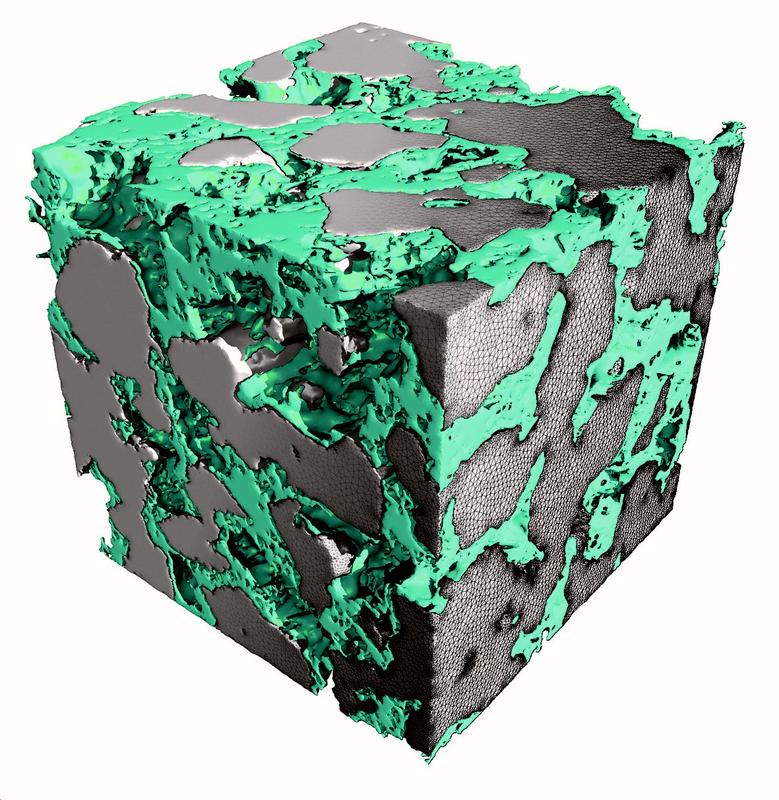

Gas diffusion electrode consisting of catalyst (grey) and polymer (green)
Helmholtz-Zentrum Berlin
Mastering the Challenges of the Energy Transition
Materials scientists, electrochemists and process engineers met from 23rd to 25th September 2019 in Magdeburg during the first international Symposium on „Insights into Gas Diffusion Electrodes“.
The event was organized by the Max Planck Institute for dynamics of complex technical systems in Magdeburg and the TU Clausthal within the framework of the DFG Research Unit 2397 “Multiscale Analysis of Complex Three-Phase Systems”.
Gas diffusion electrodes are functional materials used in various technically important electrochemical processes such as fuel cells and metal-air batteries. Especially in view of the challenges of the energy transition, the further development of these materials is of particular importance.
Since 2016, the German Research Foundation (DFG) has been funding a research unit on “Multiscale analysis of complex three-phase systems” aiming to gain new insights into the complex processes within gas diffusion electrodes.
The interdisciplinary research unit involves groups of Ingo Manke from the Helmholtz Centre Berlin, Ulrich Nieken, University of Stuttgart, Christina Roth, University of Bayreuth, Wolfgang Schuhmann, Ruhr-Universität Bochum and Tanja Vidaković-Koch, Max Planck Institute for Dynamics of Complex Technical Systems in Magdeburg. It is coordinated by Thomas Turek (TU Clausthal, Speaker) and Ulrike Krewer (TU Braunschweig, Deputy Spokesperson).
More than 100 scientists from 18 nations as well as representatives and speakers from various industrial companies such as Covestro and C3 Prozess- und Analysentechnik GmbH (Process and analysis technology) met in Magdeburg from 23 to 25 September 2019 and discussed the latest developments in the field of gas diffusion electrodes.
It became clear that only through joint efforts in the fields of material science, electrochemistry and process engineering it will be possible to better understand gas diffusion electrodes and to develop innovative processes on their basis.
During the symposium three poster prizes for young scientists were awarded.
The symposium was co-organized by Tanja Vidaković-Koch (Magdeburg) and Thomas Turek (Clausthal-Zellerfeld). The event was supported by the German Research Foundation (DFG), the Society of German Chemists (GDCh), the International Society of Electrochemistry (ISE) and the Otto-von-Guericke University of Magdeburg.
https://www.mpi-magdeburg.mpg.de/3778532/2019-10-02-pm-gde-symposium












